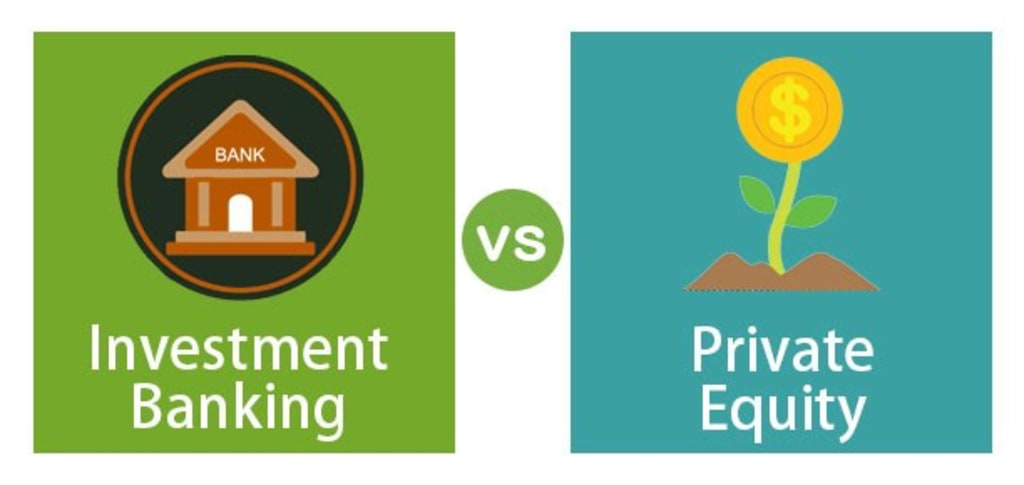Getting into A Finance Career-Private Equity Versus Investment Banking
Private Equity Versus Investment Banking

If you are studying finance, you may be thinking of which career to choose – investment banking or private equity? Well, before deciding between the two, get to know the specifics of each career and its main differences. This would help you to choose easily. Here is a brief note about both industries.
Investment banking is mainly involved in raising capital or advising companies about investments, mergers and acquisitions, and restructuring as well. The functions of an investment bank can be boiled down to four central themes – fundraising, screening for investments, managing investments and portfolio companies, and exit strategy. In brief, investment banks act as:
•Middlemen when issuing new securities or buying public
•Advise buyers and sellers on business valuation and transactions
•Facilitator for trading securities and equity research
•Providers of off-limit services such as commercial banking
On the other hand, private equity firms are investors using capital collected from insurance, endowments, pension funds, and high-net-worth individuals. They convince the capital holders to invest money and generating returns on investments. Also, investment banks may provide financing for PE deals or convince to pursue a deal through its buyout ideas.
The major functions at private equity firms include – identifying deals for LBO, analyzing target business, collecting data, and researching for a transaction.
The professional growth includes - working as Associates, followed by Seniors, Vice President or Principal, and Managing Director.
Getting into private equity jobs
Private equity jobs are challenging as the real challenge lies in making private equity funds. Another challenge is PE firms generally do not have an in-house human resource department. They rely on third-party recruiting firms to handle the hiring process – from the screening of resumes to background screening to all formal requirements.
There are fewer chances to meet the executives during the interview phase. As the recruiting firms have several profiles on the list, it is essential to take volunteer steps like initiating contacts and making repeated follow-ups. The other challenge is that PE firms seek experience for their job openings. Therefore, it is recommended to gain internships during college days or soon after education, expand your networking, or opt for an investment banking job, work there for two-three years and then jump to private equity jobs. Another challenge is that many firms grow talent in-house. The interview process takes a year to complete with multi-steps. A sincere passion for work, grit, and humility is essential to gain a career in private equity.
Given the pandemic situation, today’s professionals must have additional skills to win a private equity job. They must have knowledge about geopolitical situations, business models, keen analysis of funding strategy, estimating returns, conveying firm’s strategies, and people skills.
Getting into investment banking jobs
The competition today at the investment banks is very high as there is a demand for new skills. Investment bankers should be nimble thinkers today and should have analytical skills, resilience attitude or experience, global outlook, and come up with innovative solutions.
Digitalization and dependence on emerging technologies call for renewed skills. Investment banks look for professionals who are diplomatic, creative, and possess high ethical standards. Apart from an educational background, certification programs, it is necessary to develop interpersonal skills such as leadership, networking, and management. Strategic thinking and marketing skills help you gain the best position at high-profile investment banks.
Conclusion
Given the pandemic situation and accelerated digitalization, the expected skills for professions are evolving and becoming more challenging. It is essential to cope up with the changing situation by learning technology basics, accommodate change, and upskill oneself through certification programs and other modes of training or learning to hold a position, either in investment banks or the private equity industry.
About the Creator
Pradip Mohapatra
Pradip Mohapatra is a professional writer, a blogger who writes for a variety of online publications. he is also an acclaimed blogger outreach expert and content marketer.






Comments
There are no comments for this story
Be the first to respond and start the conversation.